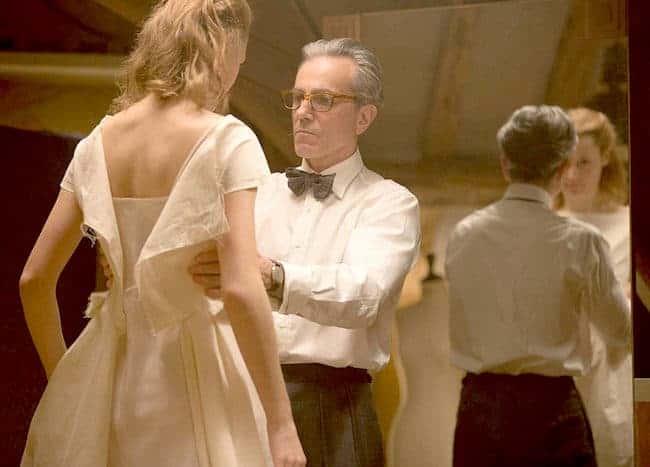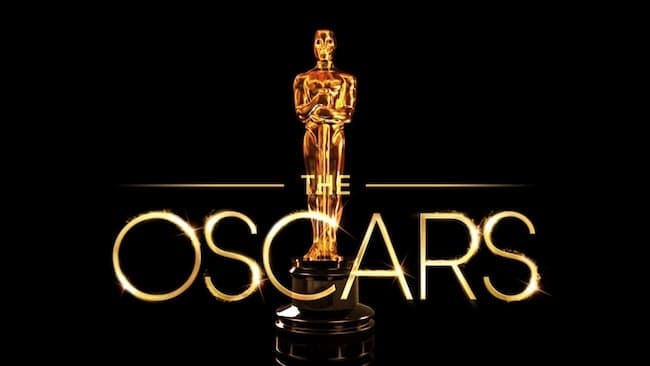 The Good
The Good
I’d have to put Darkest Hour in the “Good” category although in retrospect it really is very very good. Two of the biggest reasons are: Gary Oldman and Winston Churchill. Oldman, in the role of any British actor’s dreams, has done it all (with the help of makeup artistry—he’s learned the speeches, the voice, and the physical gestures, and convinces us that we are actually watching the great and controversial statesman buck the odds, and Parliament, to resist surrendering to the powerful German army and Adolph Hitler.
All that cigar smoke, and the charm of Oldman as the charming Churchill, take us back for a moment into a time that called for heroic action, for courage, and a man who possessed both. A taut, crisp, never-boring, beautifully photographed slice of history. Oldman’s my choice for Best Actor award.
The Bad

Here The Shape of Water, with its manipulative political correctitude, barely edges out the meandering adult fairytale, a study in close-ups, that is Phantom Thread.
1950s London is the center of The high fashion house of dress designer Reynolds Woodcock (Daniel Day Lewis) is placed in 1950s London, where Woodcock, and his sister Cyril (Lesley Manville) dress royals and socialites with their opulent, yet austere creations. Woodcock has plenty of women, but remains a confirmed bachelor until he meets a fierce young working class woman, Alma (Vicky Krieps) who becomes his lover and muse. But not his throwaway plaything. Love is the curse of all artists, and soon Woodcock just cannot cope with the disruptions and distractions of life with Alma, a woman (we’re supposed to believe) that he truly loves. But Alma has plans of her own to subdue the moody dressmaker. Her method of control, of turning her master into her submissive sweetheart, is straight out of the Brothers Grimm. And yet it can’t inject interest, intrigue, or depth into this appropriately superficial study of close-up stitching, rich textile artisanship, and other stunning surfaces that add up to not a hell of a lot.
The only reading of this film that provides some possible gravitas to this latest collaboration between Daniel Day Lewis and director Paul Thomas Anderson (who directed Lewis to an Oscar in an equally perplexing film, There Will Be Blood) is one provided to me by a brilliant friend/cultural theorist in San Diego. She reads this film as a text on class confrontation. Alma represents the oppressed working class who finds a clever way to keep her elite lover/employer under her control. Perhaps. But for me, even that tantalizing analysis doesn’t make Phantom Thread into an engaging cinematic artwork.
My other caveat concerns the acting. Even though it sounds sacriligeous, Daniel Day Lewis is not at his best in this, his allegedly final film before he retires from the screen. He appears bored with the work, and scenes in which he and Krieps (who has the most glowing skin surface in cinema) are called upon to argue, fight, and confront each other appear to have been improvised. You can actually watch the two actors fumbling for adequate words of rage. They fail, and the scenes remain unconvincing.
The Best
I’ve got my money on Lady Bird, a tale that’s been told many times before—young girl coming of age, acting out, hates her hometown, feels her parents don’t understand her, wants to head for New york—but rarely this well. So spot on is the writing, directing, and acting that the actors on the screen are all but transparent. They stand back and let the characters reveal themselves. Seamless production in which we are convinced that we’re watching real people in real situations—situations that we’ve all been in: sexual experimentation that is anything but romantic or thrilling; falling for Mr. Wrong; slogging away at pointless jobs in a city far from anywhere; loving our friends more than our siblings; ditching our Real Best Friend for the school’s most popular girl only to find out that she’s a complete loser and our Real Best Friend is the Real Thing.
So good. Just incredibly right on. Dad played by Tracy Letts is the good cop, and mom, the incredibly Laurie Metcalf is the bad cop, in fact mom is the center of Lady Bird’s world, for better or worse.
If there’s any justice in this world—and we all know just how big an “if” that really is—the Oscar for Best Supporting Actress would go to Laurie Metcalf as the edgy, loving, stressed out, picky, nagging, perpetually disappointed mother. A great parent riddled with flaws, worry, and compassion.
Saoirse Ronan as Lady Bird McPherson is the essence of 18-year-old longing, intelligence, and spunk. Lucas Hedges, who made a huge impression in Manchester by the Sea, plays her first boyfriend, then friend, and Timothee Chalamet (Call Me by Your Name) plays a petulant Mr. Wrong, with a sparkling Beanie Feldstein as Lady Bird’s BFF.
The agony and the joy of being young is perfectly etched by director Greta Gerwig, and just possibly SHE will take the Oscar for Best Director.



I wholeheartedly and enthusiastically agree with your assessment of Gary Oldman’s performance in Darkest Hour. Not since George C. Scott in Patton has an actor so thoroughly transformed himself and become the character he played so perfectly that one without an extraneous thought believes the real-life character is playing himself in the film.
I am following Ted Burke in “wholeheartedly and enthusiastically” agreeing – but in my case, I am agreeing with everything you said about Lady Bird. Blew me away. Just terrific!!